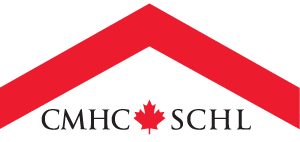Today, the Honourable Ahmed Hussen, Minister of Housing and Diversity and Inclusion, Jenica Atwin, Member of Parliament for Fredericton, the Honourable Jill Green, New Brunswick Minister responsible for Housing, and Kate Rogers, Mayor of Fredericton, announced $5 million in funding for Fredericton, one of the 41 recipients of the third round of the Rapid Housing Initiative’s (RHI) city stream.
As part of its investment plan for the Cities Stream, the City of Fredericton has approved two projects: the Mahsus Lane Development – Skigin Elnoog, which will feature 17 affordable homes, and the John Howard Society of Fredericton project, which will feature 8 affordable homes, for a total of 25 affordable homes. These affordable homes will be for Indigenous peoples, Newcomers, Black Canadians, and women and children fleeing domestic violence.
The Government of New Brunswick is investing $1.82 million in the provision of 20 year rent supplement valued at $2.28 million.
In addition to this, federal representatives announced an additional $9.3 million through the first and second rounds of the Rapid Housing Initiative Projects Stream to build 54 affordable homes in St. Mary’s First Nation, Oromocto First Nation, Tobique First Nation, Elsipogtog First Nation, Eel Ground First Nation, and Metepenagiag Miꞌkmaq Nation. In total, more than $14 million in federal funding through the Rapid Housing Initiative was announced that will create nearly 80 new, permanent and deeply affordable homes across New Brunswick.
This is made possible by the Government of Canada’s additional investment of $1.5 billion through RHI, bringing the program’s total to $4 billion to support the country’s most vulnerable. The additional funding for the third round of RHI will be divided into two streams: $1 billion through the Projects Stream and $500 million towards the Cities Stream. This investment is expected to create at least 4,500 more affordable housing units for Canadians in severe housing need across the country, with 25% of investments going towards women-focused housing projects.
Quotes:
“Everyone deserves a safe and affordable place to call home. Through the Rapid Housing Initiative, we are quickly creating new affordable homes for people who need them most, right across Canada, including in New Brunswick. The Government of Canada is working with closely with the Province of New Brunswick and Indigenous partners to create more affordable homes for vulnerable peoples and Indigenous communities. This is one of the many ways our National Housing Strategy continues to ensure no one is left behind.”
“This investment will continue to help Canadians access safe and affordable housing that meets their needs, while also creating jobs for the local economy, here in Fredericton. Our government remains committed to working with our partners to develop and implement solutions to housing in Fredericton, New Brunswick, and across Canada.”
“Investing in safe and affordable housing projects is critical in helping to build vibrant and sustainable communities throughout New Brunswick. Our government has been working diligently with our partners and stakeholders under the Rapid Housing Initiative and we look forward to continuing this important collaboration to provide better housing options for our residents.”
“Fredericton is in a housing crisis. There is an urgency that we work together to make housing available for everyone in our city,” said Fredericton Mayor Kate Rogers. “We are grateful to the federal government for today’s rapid housing announcement, which will in turn provide immediate housing options for citizens in need.”
Quick facts:
- The Government of Canada’s National Housing Strategy (NHS) is an ambitious, 10-year plan that will invest more than $82+ billion to give more Canadians a place to call home.
- Launched in 2020, the Rapid Housing Initiative (RHI) is delivered by the Canada Mortgage and Housing Corporation (CMHC), under the NHS.
- The first two rounds of the RHI exceeded expectations and are expected to create more than 10,000 units instead of the 7,500 initially planned. This includes more than 3,300 units to support women and more than 4,200 units to support Indigenous Peoples.
- The RHI takes a human rights-based approach to housing, serving people experiencing or at risk of homelessness and other vulnerable people under the NHS, including women and children fleeing domestic violence, seniors, young adults, Indigenous Peoples, people with disabilities, people experiencing mental health and addiction issues, veterans, 2SLGBTQI+ individuals, racialized groups, and recent immigrants or refugees.
Additional information:
To find out more, visit RHI3 and eligibility criteria.
As Canada's authority on housing, CMHC contributes to the stability of the housing market and financial system, provides support for Canadians in housing need, and offers unbiased housing research and advice to all levels of Canadian government, consumers and the housing industry. CMHC’s aim is that everyone in Canada has a home they can afford and that meets their needs. For more information, please follow us on Twitter, Instagram, YouTube, LinkedIn and Facebook.
To find out more about the National Housing Strategy, visit: www.placetocallhome.ca.
Check out the National Housing Strategy Housing Funding Initiatives Map to see affordable housing projects that have been developed across Canada.
Information on this news release:
Mahreen Dasoo
Office of the Minister of Housing and Diversity and Inclusion
Mahreen.Dasoo@infc.gc.ca
Media Relations
Canada Mortgage and Housing Corporation
media@cmhc-schl.gc.ca
Appendix:
| Project | Region | # of units |
|---|---|---|
| St. Mary’s First Nation (Sitansisk Wolastoqey) Affordable Housing Project | St. Mary’s First Nation | 10 |
| Oromocto First Nation Housing Initiative | Oromocto First Nation | 4 |
| Hollow Court Emergency Housing | Elsipogtog First Nation | 20 |
| North Shore Mi’kmaq District Council Housing Project | Metepenagiag First Nation | 4 |
| North Shore Mi’kmaq District Council Housing Project | Eel Ground First Nation | 4 |
| 12 Unit Family Home Project | Tobique First Nation | 12 |






 Share via Email
Share via Email
